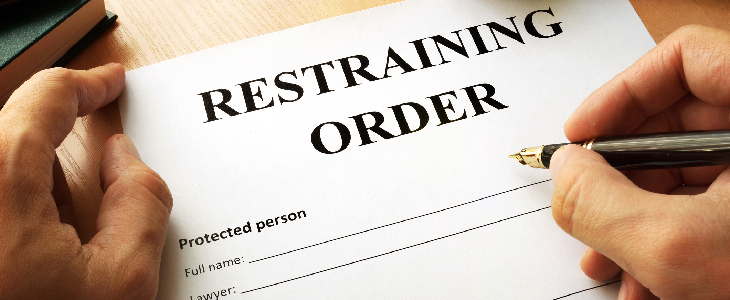Living under the constant threat of harassment, stalking, invasion of privacy, emotional abuse, or physical violence is terrifying. In Central Florida, as throughout the country, protection orders can be put in place to prevent such illegal conduct. Unless protection orders can be enforced, however, they are not an effective deterrent. If you require a protection order or are having difficulty getting an existing order enforced, contact Orlando Family Team for immediate assistance.
Our family law attorneys make it a top priority to protect vulnerable clients from domestic violence. We have the legal skills and extensive experience to defend our clients’ rights to live free from interference, domination, and fear. For this reason, we are firmly committed to seeing that protection orders we file on their behalf are enforced to keep them and their families safe.
The Four Types of Orders of Protection in Florida
Since July 1, 2003, Florida law has distinguished four distinct types of orders of protection against violence. Also known as restraining orders and injunctions, these four protect Floridians from:
- Domestic violence that occurs between parties living together as a family or who have a child together
- Repeat violence in which the respondent has committed 2 previous acts of violence against the petitioner of the petitioner’s immediate family within the past 6 months
- Dating violence in which the parties have had a dating relationship within the past 6 months
- Sexual violence in which the petitioner has been a victim of sexual violence and has reported the crime to law enforcement
At the court’s discretion, each of these protection orders may be issued on a temporary (ex parte) basis — specified to expire on a specific date — or “permanently,” typically in place for a period of 1 to 5 years.
What do they protect you from?
If you have been suffering emotional, verbal, or physical abuse from your present or former spouse or partner or from another family member, our protection order attorneys can help you obtain a customized Florida protection order that will shield you from potential harm by, for example:
- Making the respondent leave the home (even if she or he owns the residence)
- Giving you full custody of any children in the home
- Requiring spousal and child support from the respondent
- Demanding that the respondent surrender all guns and ammunition
- Requiring the respondent to attend a Batterers’ Intervention Program (BIP) or substance abuse program
- Demanding that the respondent remain at a certain distance from you at all times (e.g. your workplace or school as well as your home)
These stated restrictions will apply whether you remain in Florida or move to another state.
Violations of Protection Orders in Central Florida
Protection order violations, depending on circumstances, may be handled as felonies, misdemeanors, or contempt of court. They can violate either civil or criminal protection orders. Depending on what occurred during the violation, there may well be additional charges.
Common violations of protection orders include:
- Refusal to leave a shared residence
- Commission or threat of further stalking, harassment, or violence
- Forbidden contact with the petitioner or the petitioner’s children or other family members
- Interference with, or defacement of the petitioner’s personal property
- Refusal to relinquish firearms or ammunition if court-ordered to do so
- Showing up at the victim’s workplace, school, or home
- Defacing, vandalizing, or taking the victim’s personal property
- Making harassing or threatening contact with the victim by phone, text, or email
It is important to note that the stipulations of a protection order must be followed by the respondent, regardless of whether that person believes the document was ordered in error. Otherwise, harsher penalties are likely to be enforced.
Penalties to Enforce Protection Orders
Such violations, depending on severity, and on whether the offender has a history of similar violations, can incur widely variable penalties.
If the defendant is found to have violated a civil protection order in the state of Florida, he or she may be charged with a misdemeanor punishable by up to one year in jail or one year’s probation and a fine of up to $1,000. Any subsequent offense can result in a Class 1 extraordinary risk misdemeanor with a penalty of up to 24 months in jail and up to $5,000 in fines.
Offenders who violate protection orders can also be ordered by the court to attend substance abuse or anger management treatment and/or undergo periodic drug and/or alcohol testing. Based on particular threats or risks the court perceives, the judge may add additional criminal charges. The maximum punishment depends on whether the order was a civil restraining order or a criminal domestic violence protection order, as well as whether the respondent has a history of similar violations.
Contact Our Protection Order Attorneys Now to Protect Yourself & Your Family
No one should have to live under the threat of harm or ongoing intimidation. If you have cause to be concerned about your safety and the safety of your loved ones — even if you already have a protection order in place — now is the time to take action.
If you are in immediate danger, contact the police immediately. If you need aggressive legal advocacy to see that your protection order is enforced, contact Orlando Family Team at once. We will provide you with the legal protection and compassionate emotional support you need and deserve.
Orlando Family Team helps families with enforcement in protection orders in Orlando and other locations in Florida including Maitland, Orange County, Osceola County, Sanford, Seminole County, Volusia county and Winter Park.
